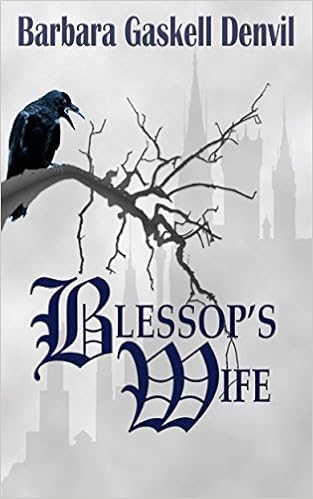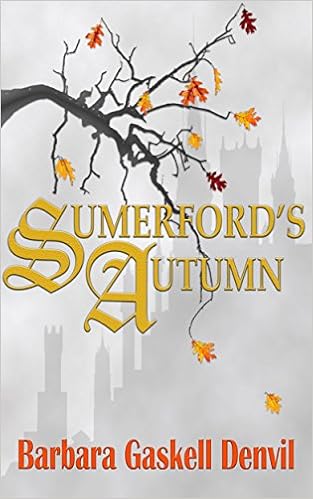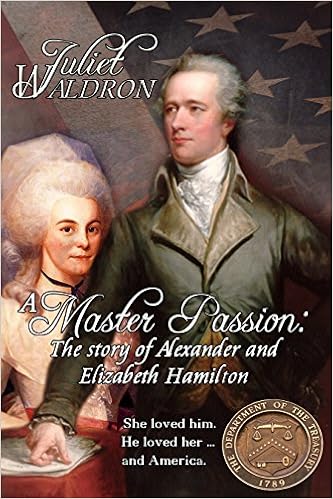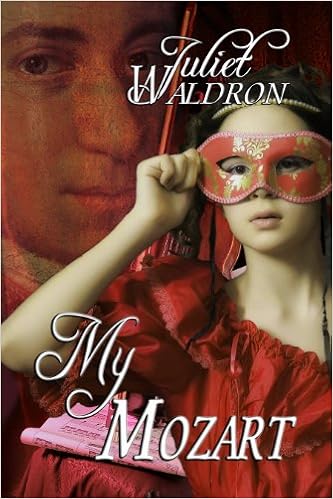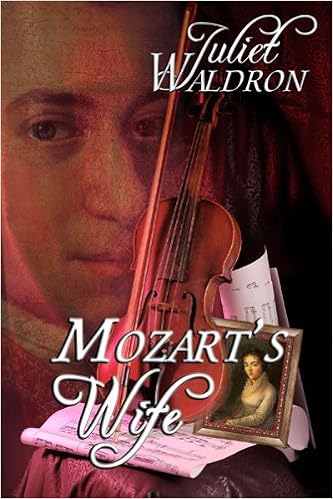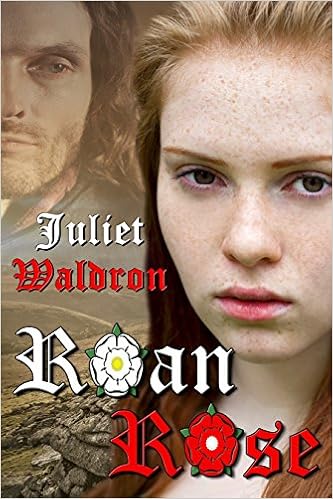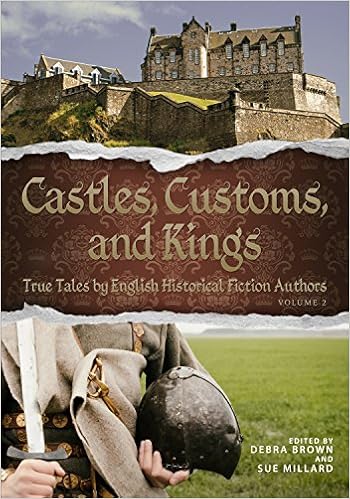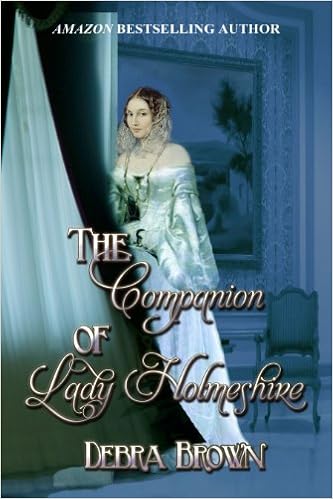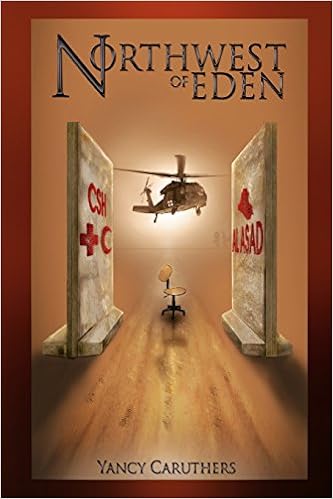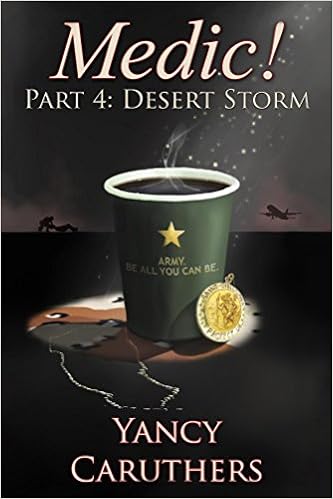Commies!
Welcome
Janet Stafford,an author of inspirational novels, namely a Brag Medallion Honoree
Saint Maggie.
Maggie Blaine, a widow with two teenage daughters, runs a rooming house
smack dab on the town square. In 1860 this makes her a social outcast.
Boarding houses are only semi-respectable and hers has a collection of
eclectic boarders - a failed aging writer, an undertaker's apprentice, a
struggling young lawyer, and an old Irishman. In addition, she has a
friendship with Emily and Nate, an African-American couple with whom she
shares her home and chores. It is a good thing the town doesn't know
that Maggie, along with Nate, Emily, and Eli Smith (the free-thinking
editor of the weekly newspaper) are involved in the Underground
Railroad. When she is asked to house handsome, gifted Jeremiah Madison,
the new Methodist minister, Maggie hopes that he will both revive the
little church she attends and provide her boarding house with a bit of
badly-needed respectability. But Jeremiah comes with some dark secrets
that challenge Maggie's resolve to love and respect all people. As the
town's people reel from a series of shocking events, the compassionate,
faithful Maggie searches for truth and struggles to forgive and love.
(Based on a historical event.)
_______________________________________
MJN:
You pride yourself in writing character-driven and uplifting stories. I
scratched my head and asked myself: what makes a story uplifting? A mandatory
happy ending? Some sense of moral closure where the main character has an
epiphany? This could be just me, but some of the most uplifting stories I've
read had ended with the death of a protagonist.
JS: I don’t pride myself in my writing. I’m just saying
that’s what I like to do or try to do. I’m giving readers a clue as to what
they’ll encounter. I probably should add, “Don’t read these stories if you like
your books religion-free.” Ha!
To
me, uplifting indicates that there is hope imbedded somewhere within the story
– although it is not necessary to have a happy ending. There is a great deal of
pain and suffering in the world, and I believe that it is helpful to face these
things with hope and to respond to them with love and action. There is a happy
ending of sorts in Saint Maggie in that Maggie’s husband survives an ordeal –
but he is physically changed. He will never be the same. Frankly, as I went on
to write a series I realized that Eli’s situation also changed the way I had to
write him.
As
for moral closure with a main character having an epiphany, epiphanies do occur
in what I write. Maggie has an epiphany half-way through the book, but it has
to do with how she, as a faithful Methodist, relates to others. The epiphany actually
gives her the grit to do what she does later in the book. She was already
half-way there, but needed confirmation that she was on the right path. Saint
Maggie deals with the audacity of forgiveness in the face of violence and
betrayal. Maggie’s response brings criticism and the cold shoulder from the
majority of the people in her town. Also, the “bad guys” in the story don’t
necessarily get their due. You know how unsatisfying it is these days when a
shooter commits suicide? We want that person to be arrested, put on trial, and
if found guilty receive a just punishment. Well, I allowed that not to happen
in Saint Maggie. Our thirst for justice is thwarted somewhat by the chain of
events in the book.
The
other books in the series follow a similar path. Walk by Faith, the second in
the series, deals with the effect the Battle of Gettysburg has on the town and
the impact of the war on newspaperman Eli (Maggie’s husband), his fellow
reporter Carson, and soldiers Edgar and Patrick. How do we deal with the
violence of war? How do we define the word “enemy”? (I fear I’m not happy with
the ending of the book. I plan to revise it to allow a bit more ambiguity at
the end.) A Time to Heal, the third book, looks at how the family recovers. In
the process, they get in hot water when Maggie’s daughters take compassionate
action that also is civil disobedience. Again, how do you deal with difficult
times? How do you live compassionately within the rules of wartime?
I
also have written a contemporary romance called Heart Soul & Rock ‘n’ Roll.
I was surprised when a couple people told me it made them cry. One said she had
to keep tissues next to her all through the second half of the book. Another
said it made her sad, so I asked why. She said it was because of the broken
relationships and pain of addiction within the story. Yes, I confess that the
book does have a happy ending, but it does not come without one of the
protagonists having been pretty well wounded on an emotional level. This
“sad/happy” pull is biblical. In the book of Genesis, Jacob wrestles with God
and wins and then goes on to be reconciled with his brother, Esau. Happy
ending! And yet Jacob is left with a limp from his wrestling match with God:
hence, not so happy.
MJN:
I see you have also written film scripts. Your award-winning novel Saint Maggie features a cast of
eclectic characters including a failed writer, and Irishman and an
African-American couple. I see an ensemble cast production for Lifetime or Hallmark.
JS: Good Lord, I hope not! (The money might be nice,
though.) The truth is after playing around with both formats, I find writing
novels to be much more satisfying. These days I define myself as a novelist. Strangely
enough, Heart Soul & Rock ‘n’ Roll started out as a film script, although I
like it much better as a novel. In the book I was able to develop the
characters, delve into their backstories, and enlarge the plot.
Writing
a script for a prospective film means that much of the story has to be told
through images and abbreviated but powerful dialog, all of which you have to do
in about 90-120 pages. Also, since film making is a collaborative process,
you’re delivering your precious baby into the hands of a producer, director,
set designer, and actors, among many others, who go on to change it. Writing a
novel allows the author to control the process. Essentially you are writing a
film that people will then play in their imaginations. Yes, that process also
changes things, but it’s on an individual basis. In fact, I enjoy people
telling me what they think my characters look like and guessing which real New
Jersey town is Maggie’s little Blaineton, and so on. In addition, writing a
novel allows me the luxury of describing the environment and the characters’ appearance,
dress, speech, and backstories.
That
aside, I might consider having my work translated into a movie as long as the
director brought that “outsider” ensemble feel to the film. I think we desperately
need images of diverse people living and working together to dispel the past 30
years’ self-fulfilling prophecy that we are hopelessly divided. My theory has
always been that getting to know someone who is different from you generally will
explode group stereotypes. That is not to say that there aren’t jerks, fools,
and evil individuals out there – but the vast majority of people seem to be well-intentioned.
MJN:
Your formal education includes a B.A. in Asian Studies and a Ph.D. in North
American Religion and Culture. Impressive! The two geographic areas
are so far apart physically. How do the two pools of knowledge you've build up
complement each other?
JS: The two degrees came at two different points in my
life. I received the B.A. when I was twenty-one, a traditional-age college
student. I ended up in the degree program because I had enjoyed a smattering of
Asian studies in high school. Also, because we were experiencing a recession at
the time, I thought, “What does it matter? I’m not going to use my degree
anyway, so I might as well major in something I like.” Ironically, I did work for
a couple of years at Kawasaki Motors in California shortly thereafter!
I
pursued the Ph.D. in my forties after I had been through theological school and
served two churches, one as a local pastor and the other as a Christian
education director. As I like to put it, God kept nudging me to go into
ministry. I finally gave up in my early- to mid-thirties – because … well, God
is a total nudge. Unlike the B.A., the decision to go for a Ph.D. was
well-thought out. I wanted to learn more about the history of Christian
education, since that was my vocation. I planned to go on to teach the subject
in a seminary. Boy was I wrong. At the same time I was going for the Ph.D.,
universities and colleges began hiring adjuncts rather than full-time
professors to save paying health insurance, retirement, and higher salaries.
It’s another form of outsourcing – you hire hungry Ph.D.’s and only pay them
per course. You never give them more than two or three courses because then
they would become full-time. Yet, ironically you still demand that they attend
faculty meetings and take training, just like the full-time professors. But I
digress…
How
do my two streams of study complement each other? Hmm. Well, I think my
exposure to Asian thinking, philosophies/religion, and cultures, as well as my
exposure to people of Asian background were a big part of my early journey. These
things opened me up to new ideas. I learned to appreciate individuals and
cultures different from mine. Later I realized that, even though my Ph.D.
degree program was called North American Religion and Culture, I really was
studying North American Religions and Cultures. (Regrettably, we really didn’t
study Canada all that much – the university rightfully should have called the
program Religions and Cultures of the USA.) In the United States we have, or
should have a unity based on our governmental structure and philosophy. Folks
outside of our nation might say we have one culture. They might say Americans
are overly friendly, somewhat noisy, and I don’t know what else. If you ask
someone from anywhere else in the world, they probably will describe us as a
unity. However, if you are living in this country you know that our regions and
even our states have differing cultures, and within them live subset groups
with their own cultures.
As
someone who has a vocation in the church, I think that sensibility has helped
me relate to people who are part of our congregation, to those who visit, and
to those we encounter in the community. Our area of New Jersey is fairly
diverse and our church is beginning to reflect that diversity.
By
the way, I learned to speak Chinese fairly fluently at Seton Hall University.
After college, I shared an apartment with two fellow students. But they had studied
Japanese. We also had a friend of theirs on a year-long visa from Japan living
with us. That meant I spent a lot of time at the dinner table nodding my head
and saying “Hai, Hai, (Yes, Yes),” while everyone else was having a
conversation I was unable follow since it was in Japanese. Luckily, I managed
to pick up a few phrases and injected these randomly into their conversations,
much to their great mirth. It was my not-so-subtle cue for them to finish the
conversation in English! But I have not had much of an opportunity to speak
Chinese (Mandarin) since then. I kind of miss it.
MJN:
One of your characters in Saint Maggie
is a gifted and eloquent Methodist minister who resolves to revive a
parish. As a fellow Christian and a historian, I am absolutely heartbroken to
see historical churches in small towns closing down. My husband was born in
Central Pennsylvania, an area known for its history of coal mining. Over
the past decade he has seen many neighborhood churches close down. It's
always painful to see, even when you tell yourself that "Christ is in your
heart."
JS: The reason the loss of congregations is so painful is
because Christ isn’t just in the heart. Christ is in the community. In fact, I
don’t believe that we can be Christians all on our own. Christianity is
essentially a communal religion and we come by it honestly. Judaism is communal
and familial. We are connected to that tradition through Jesus, who had his
disciples around him in good rabbinical fashion. Later, the disciples went out
and founded communities of people. The Acts of the Apostles tells us that these
groups – churches – ate with one another, worshiped together, and shared what
they had.
It’s
not that I don’t think we cannot experience God while taking a walk outside or
in solitary meditation or in any other single pursuit, but we are at our best
and are what Christ intended when we are in community. A community of people
can do so much more than one person. We can solve problems, we can inspire, we
can encourage, we can help those in need, and more. Jesus said that when we are
open and caring and reaching and teaching, the Kingdom of God is present. That
is why losing congregations is so painful.
The
senior pastor I work with always says, “Change comes one death at a time.” So
although the closure of so many congregations may appear to be deaths, perhaps
it actually may be call for us to reconfigure how we do church. I don’t mean
adding a rock band up front or a coffee stand at the back. That’s cosmetics. We
need to become radical in how we do church. How do we touch those whom Jesus
told us to care for?
The
other Sunday the folks at my church had a commissioning service and then went
out to do something for our community. Some participated in a walk to raise
funds for a young boy suffering from ALD and for ALD research; another group
walked to raise funds for suicide prevention and awareness; some packed lunches
for the homeless; another organized a food drive; and another helped at an
animal shelter. My group held a rummage “free sale” and a carnival of
activities for kids, both held outside as it was a nice day. At the free sale I
saw people sharing their stories and mutually helping one another find the items
they needed. Some who came for help later returned with clothing or items for
us to add to the sale. And then someone asked, “Hey, where can I give a money
donation?” I had to scramble to find a jar and make signs. People put $175 into
that jar. They were the same people who came to get free stuff. The jar
provided them with the dignity of making a donation if they could. One lady
stuffed her trunk full of bags of clothing then ran back and proudly presented
us with a ten dollar bill. Outside our building we found ourselves in community
with others. There was a Kingdom-like mutuality to it all.
My
question now is: how can we make this part and parcel of who our church is and
what we do and how we relate? How do we show the love we have experienced in
Jesus with our community and with the wider world? That still remains to be
seen. But we do know one thing: we all agreed that we’re definitely doing “The
Church Has Left the Building” again.
MJN:
Saint Maggie is set in 1860, on
the eve of the American Civil War. Several of your characters are abolitionists
and involved in the Underground Railroad. I heard one author say that
"racism is a disease". And I agree that racism is a disease, but like
any disease it tends to mutate. It's like chemo-resistant cancer. The old
medication doesn't work, because the disease itself has changed shape and
course. This is my personal view, and feel free to disagree, but in the past
few years fight against racism has taken on an unattractive turn. I feel like
some self-proclaimed human rights activists are making matters worse,
aggravating the polarization of races. One African-American author actually
said that when white people proclaim themselves "color-blind", it's
not good enough and actually insulting to the people of color. Apparently, the
only acceptable thing to do for a white person is to admit that they are
benefiting from "white privilege". The statement seems a little
outrageous to me. So I'm asking you, as a woman of faith, who presumably
believes that "all lives matter", what can be done on the level of
media to neutralize the further polarization of races?
JS: I think we’re talking two
things here. 1) Whether white people should participate in the struggle to end
racism; and 2) whether emphasis should be put on the lives of black people over
and above the lives of everyone else.
I agree that “all lives matter.”
Theologically speaking, Jesus held the same view – are we not all children of
God? But he also had a heart for the “least of these”: the poor, the
demon-possessed, the ill and injured, the powerless, and those at the bottom of
society. The problem with “all lives matter” is that it tends to lump everyone
equally together and thereby negate the idea that we actually have a problem
with regard to race.
The argument presented by some African
Americans today about excluding white people in the struggle is similar to the
early Malcolm X’s statements back in the 60s. He was adamant that whites could
not help because they didn’t get it. They were well-intentioned do-gooders, but
they did not understand the dynamics of racism much less understand and
acknowledge their participation in it. However, it is also interesting to note
that toward the end of his life Malcolm went on a Hajj, during which he saw all
races worshiping together. That experience changed his perspective. He became
more open to those white people who wanted to help put an end to racism. Perhaps
some African Americans today are where Malcolm was early in his career. Perhaps
they have not yet had an experience of unity. But the work should not be all on
those who are black.
A couple of experiences in my life taught me
the value of shutting my mouth and listening. One came in high school when my
tenth-grade teacher, John Pinkard (the only African American teacher in the
school at that time), brought a Black Panther to speak to us at a special
evening meeting. What can I say? It was 1967 or 1968. The man explained his
life and his take on racism. With regard to integration, he told us the same
thing Malcom X had once said, “Say you have a cup of strong, black coffee. Now
you add cream to it. What happens? It’s diluted!” I remember thinking, “Oh,
yeah? Well, what if you have a nice glass of milk and you add chocolate syrup
to it?” The answer of course is: “A tasty treat” Obviously my fifteen-year-old
brain’s analogy didn’t work! But, all humor aside, I did hear the man. He actually
was talking about dignity and self-reliance, and how fragile those things were in
his community.
Later when I went to theological school, I
enrolled in a class called “The Black Worship Experience,” taught by the
amazing Dr. Dean Trulear. The class had about 1/3 white students, 1/3 black
students, and 1/3 Korean students (the Drew University Theological School has and
still has a large Korean population). I
recall sitting in that class and listening to the black students express their
anger and frustration. In my head, I was screaming “Wait!! I never did that to
you!! Not guilty! Not guilty!!” Then something told me to shove my feelings
aside and just sit there and take it. So I did. As a result, I ended up feeling
compassion for my fellow students and their anger.
These experiences, plus a few others, have
led me to realize that I am the recipient of certain privileges because I am
white, although not all, since I also am a woman. I recognize that racism is not
prejudice but an institutional process. I also see that we desperately need to
learn from and listen to each other. Sadly, what we’re doing now is waiting
until the “other guys” stop talking so we can yell our talking points back at
them, and vice versa. True listening means putting your ego and pride aside and
hearing with compassion what the other person is saying. Needless to say the attitude
needs to go both ways. But when someone has been badly hurt they may need to
scream and shout, because they feel no one really has heard them. So the process
is not easy – complicated by the fact that we live in a mediated culture that wants
to boil everything down to 10-second sound bites and photo-shopped images. The
truth is there is no magic pill to make racism go away. It will take work, lots
of work.
Another essential is getting to know each
other as individuals. As I said earlier, once you start having friends who are
not like you, it tends to explode stereotypes. I’m lucky. In my life I have had
the opportunity to work with, learn from and with, and live with people who
aren’t like me. Now when I hear someone saying something potentially hurtful or
outrageous on the news, I usually wonder what propels them to make those
statements. I suspect it is because they themselves are experiencing pain,
fear, or feelings of exclusion. We can’t go on like this. We must learn to listen
and hear, rather than erect walls and yell.



